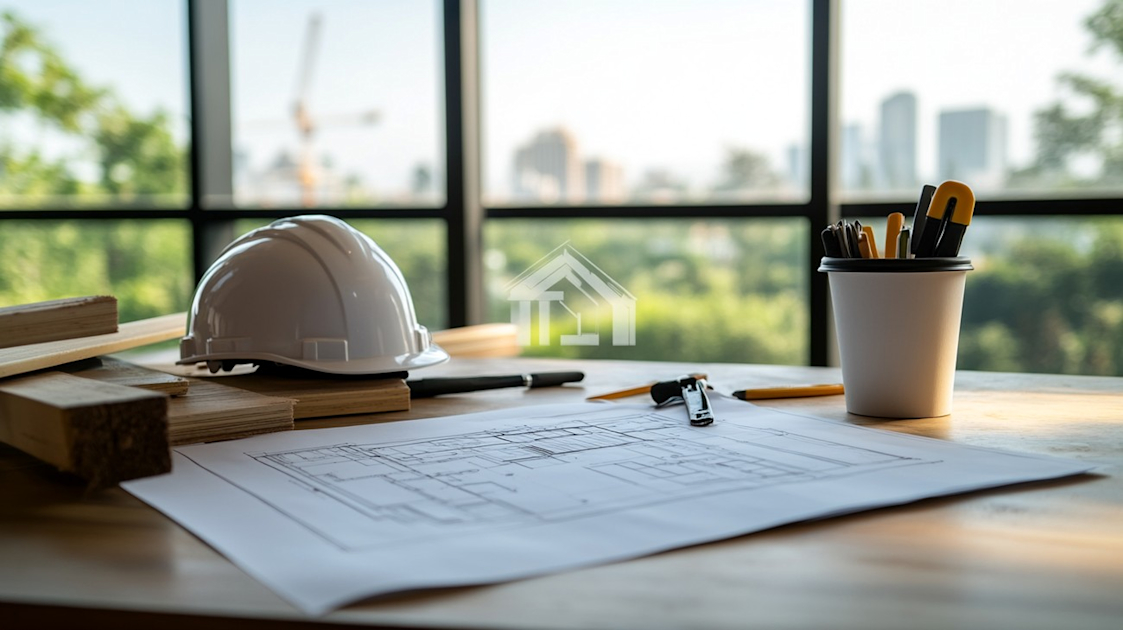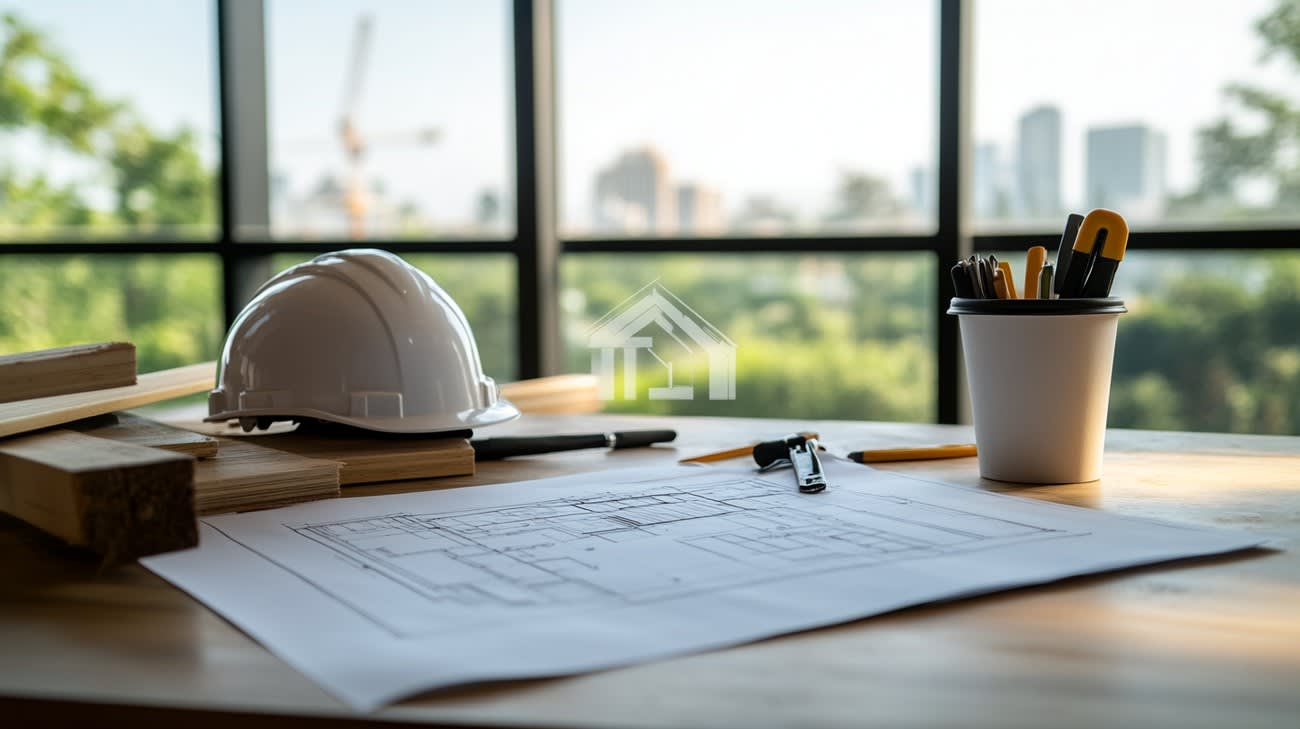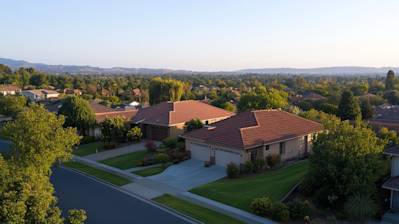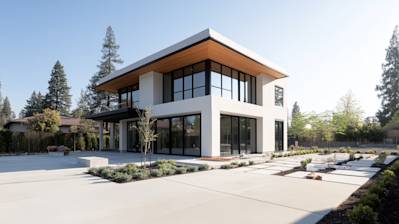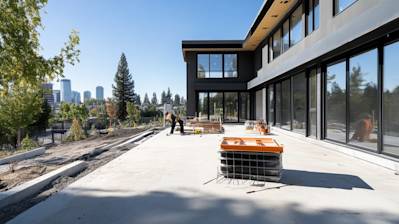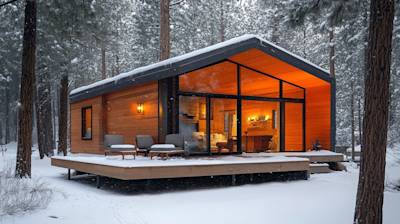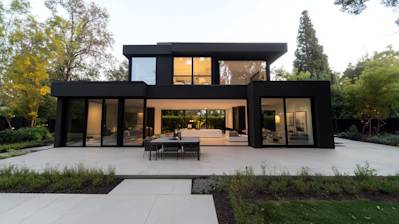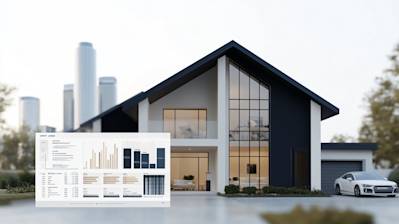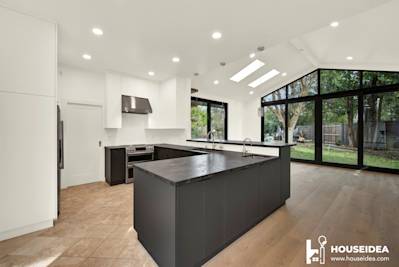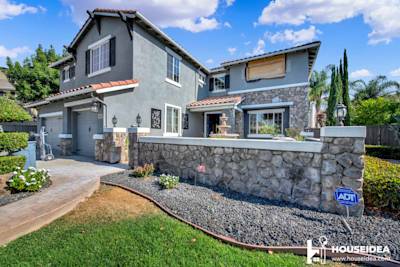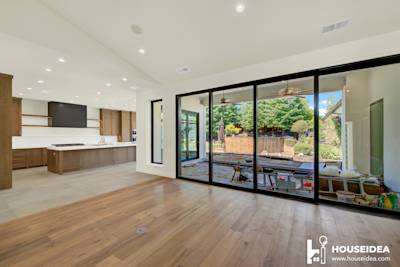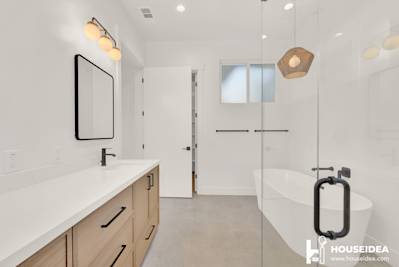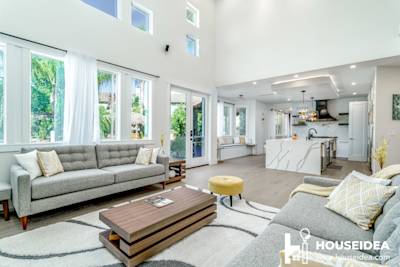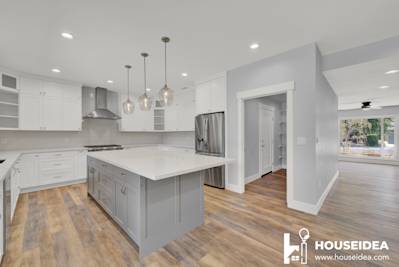If you’re considering starting a new build, whether it’s constructing a dream home from scratch, developing a commercial lot, or expanding your existing structure, having a well-drawn plan can guide you through the process. Planning and executing a new build encompasses various aspects - from budgeting to hiring the right team, from design considerations to securing necessary legal permits.
In this article, we present some insightful tips that will help ensure your new build project is carried out smoothly and successfully.
1. Define Your Budget
Your budget is the backbone of your building project. Before delving into designs and materials required, determining your budget should be your priority. Your budget should be realistic and inclusive of all possible expenditures:
- Constructing materials and supplies
- Labor costs
- Professional fees
- Unforeseen costs
Remember, the quality of your build wouldn't necessarily be compensated by stretching your budget. It’s preferable to work within your budget while paying attention to the quality of materials and professional input.
2. Select a Suitable Location
The location of your new build carries immense significance. Whether you’re considering the resale value or your satisfaction living in the space, location is key. Always consider these factors:
- Access to essential amenities
- Aesthetics of the neighborhood
- Ease of commuting
3. Pick Your Team Wisely
Choosing the right professionals to guide you is crucial. From an experienced architect to a competent builder, every professional plays a unique role in the success of your project. Engage with your team and ensure transparent communication throughout the process.
4. Make Your Design Choices
Designing your new build can be a creative and fun task. However, ensure your choices are practical and functional. Consider factors such as:
- Number of rooms and their placements
- Natural light availability
- Storage options
- Landscaping around the property
5. Secure Necessary Approvals or Permits
Every new build requires permissions and approvals from local authorities. These vary based on your location, size, and nature of your project. Ensure all permits and legal paperwork are secured before you commence your project.
6. Prioritize Sustainability
In line with global eco-friendly trends, promoting sustainable practices in new builds can add substantial value to your project. Consider sustainable choices like:
- Incorporating energy efficient appliances and fixtures
- Maximizing natural light
- Recycling construction waste
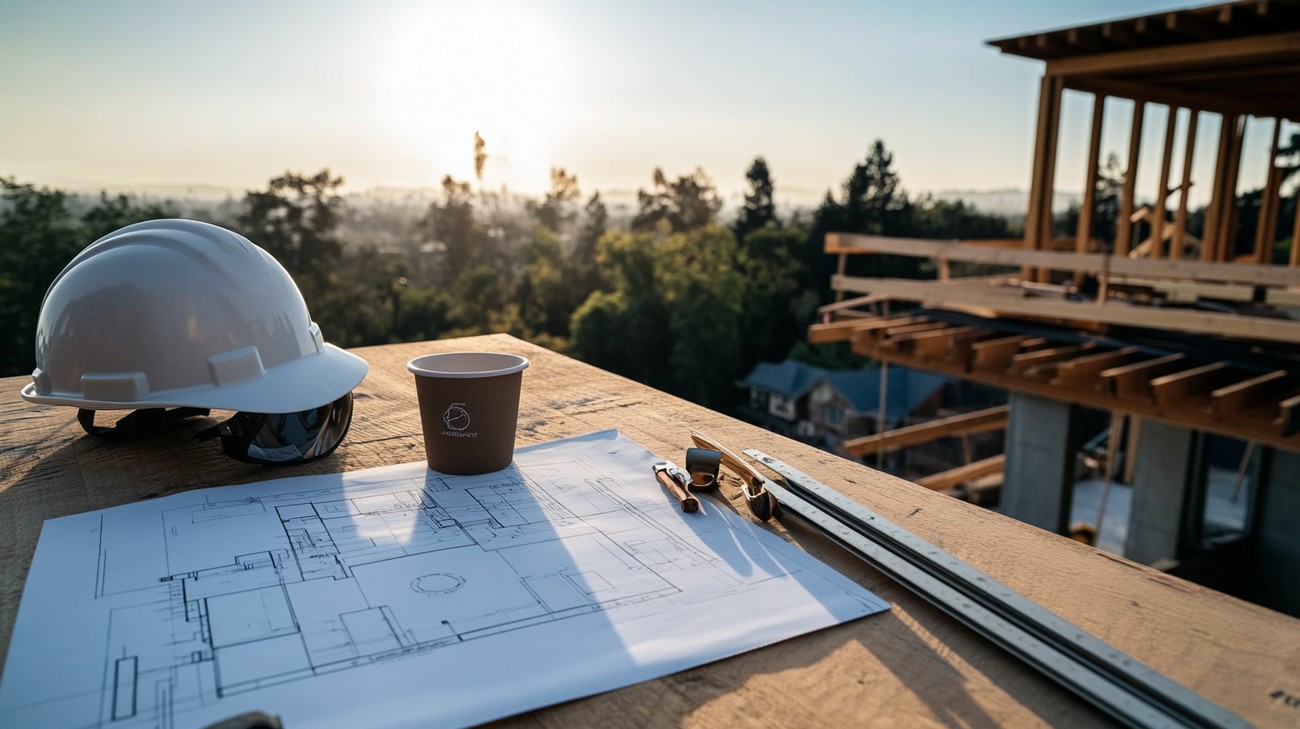
Frequently Asked Questions about Tips Before Starting A New Build
Is it necessary to create a detailed plan before starting a new build?
Yes, it is essential. A detailed plan guides your entire building process. It sets the direction and pace at which your build should proceed. Additionally, having a clear plan in place helps in identifying the resources required, setting a realistic timeline, and, most importantly, maintaining the budget of your new build.
What should I consider when sourcing materials for a new build?
When sourcing materials for a new build, consider factors like quality, price, and your project's specific needs. The quality of the materials should be uncompromised as they directly determine the longevity of your construction. Compare prices from various suppliers to ensure you get the best deal without compromising the quality. More so, keep in mind the specific requirements of your project to avoid buying inappropriate or unnecessary materials.
How important is having a contingency plan when starting a new build?
It's extremely important, and this fact cannot be overstated. Being prepared for unexpected cost overruns, schedule delays, or unforeseen problems with tips before starting a new build will keep your project running smoothly and efficiently. A contingency plan allows you to quickly adapt and react to any hiccups along the way, minimizing the potential for significant disruptions or complications on your new build.
How can I ensure the skills of my hired builder are up to par for my new build?
Interview and vet potential builders thoroughly. Look into their past projects, check their references, and pay attention to reviews or testimonials from their previous clients. You can further assess their skills by asking detailed questions during the interview process surrounding their experience, certifications, or specialties. Remember, the success of your new build hugely depends on the skill and expertise of your builder, so it's worth investing time and effort in finding the right one.
When should I consider getting advice on a new build from professionals?
As a rule of thumb, seek professional advice from the start. Tips before starting a new build from professionals in the industry is invaluable. They can help you develop an actionable plan, recommend cost-effective materials, provide insights about potential challenges, and share some best practices to ensure your construction process runs smoothly and efficiently.
Are there specific building regulations I should be aware of before starting a new build?
Absolutely, each state or jurisdiction has specific rules governing the new build processes. Failing to adhere to these regulations can lead to hefty fines or even halting your project. Before starting your new construction, familiarize yourself with all the relevant building codes and regulations, get necessary permits, and ensure your project is compliant.
Can digital tools assist in planning and executing a new build?
Yes, digital tools can bring about a significant level of efficiency when planning and executing a new build. Software applications for project management, budget tracking, design modeling, and timeline scheduling not only help streamline the process but also improve accuracy and productivity. Utilizing such tools is one of the tips before starting a new build that could save you substantial time and resources.

Pros of Tips Before Starting a New Build
More Efficient
Having a clear set of guidelines to follow before embarking on a building project can significantly enhance efficiency. With proper planning and project direction in mind, resources can be optimally utilised and the project is more likely to proceed smoothly without unforeseen interruptions or hurdles.
Time-saving
Tips provide a roadmap to what needs to be done, potentially saving significant amounts of time. Instead of wasting time trying to figure things out as you go or redoing work that was not done correctly in the first place, you will have clear directions to follow from the start.
Cost-effective
By following tried-and-tested advice, you are more likely to avoid expensive errors and unnecessary costs. Being aware of potential pitfalls gives you the opportunity to plan for them ahead of time and have solutions on hand, which can keep your project budget on track.
Better Results
By understanding expectations and having a solid plan, you're more likely to have a successful build with a better quality outcome. You're less likely to make shortcut decisions that can compromise the finished project.
Quality
Knowing what to do and when to do it allows for a more organised building process and a better quality build. For example, you’ll know better to use the right materials for the job, which can lead to improved aesthetics and durability.
Likely to Meet Expectations
By setting out clear goals and having guides to benchmark your progress, your build is more likely to live up to your expectations. Instead of just winging it, you will aim and work towards a clear direction, minimising the chances of deviation from the desired outcome.
Increased Learning and Skill Development
The process of adhering to a set of tips before starting a new build presents opportunities for learning and skill enhancement.
Learn from Others' Experiences
These tips typically come from professionals and experienced builders who have likely been in your shoes. Therefore, following their advice can help you learn from their experiences without having to endure the same troubles.
Cons of Tips Before Starting a New Build
Specific vs General Tips
While building tips can be very helpful, it's important to bear in mind that not all advice will apply directly to your situation. What may work well for one person or project, might not work as well for another.
Not one-size-fits-all
Every build is unique in its own way, with different factors to consider such as location, materials, design, weather conditions, and much more. A tip that is beneficial in one scenario might not apply in another.
May not Custom-fit your Budget
Following these tips will sometimes lead to additional costs. They're often aimed at a medium to high budget project. Therefore, those working within a tight budget may struggle to incorporate all the suggested tips.
Overwhelming Information
Depending on the complexity of the build, the number of tips you find could be excessive and potentially overwhelming.
Information Overload
Without proper understanding or context, you may be vexed about which tip to follow or which advice is more applicable to your case. There might be several conflicting tips and trying to adhere to all of them may leave you confused and unproductive.
Paralysis by Analysis
In some cases, you can get so caught up in trying to follow all the tips that you may end up not starting your project at all.
Dependence on Tips
Relying too heavily on advice may limit your ability to make independent decisions or think critically about unique challenges that arise during your build.
Lack of Innovation or Creativity
There's a risk that by following tips straight from a guide, you may stifle your own creativity or innovative problem-solving strategies. Each project offers unique challenges and opportunities for learning, and by depending entirely on the expertise of others, you risk missing out on these.
Independence
Following tips closely can create a sense of dependence, where you may find yourself unsure how to proceed without direction. This can make effectively managing your project difficult, especially when new, unforeseen problems arise.

Myths and Misconceptions about Starting a New Build
In the world of construction and home improvement, one of the most exciting milestones is starting a new build. However, the journey is often riddled with a host of myths and misconceptions that can detract decision-makers from the truth and the best course of action. Here's an exhaustive list of these myths, along with their corresponding reality checks or corrections.
Myth 1: The Lowest Bid is the Best Option
Misconception: Going for the Builder Offering the Lowest Bid Saves Money
Many people fall into the trap of equating value with cost. They automatically assume that the builder who has offered the lowest bid offers the best deal.
Reality
While pricing should be one of the factors to consider when selecting a builder, it should not be the sole determining factor. Often, the lowest bid may mean cutting corners, compromised quality, or hidden costs that will surface post-construction. The best value for your money is a balance of cost and quality.
Myth 2: The Bigger the Builder, the Better
Misconception: Big-Name Builders Provide Better Results
Some people have the misconception that big, well-known companies will invariably offer better quality services.
Reality
The size of a builder's company doesn't always equate to the quality of service and work provided. Often, smaller or local builders can provide personalized, focused service and attention to detail that larger corporations may lack.
Myth 3: Custom Builds are Always Expensive
Misconception: Custom Building is Out of Reach for the Average Homeowner
The term "custom build" often sounds pricey, leading many people to think custom-built homes can't be affordable.
Reality
The cost of a custom build depends on a variety of factors—size of the home, materials used, location, etc. With careful planning and budgeting, a custom build can be quite affordable.
Myth 4: Renovations are Cheaper than New Builds
Misconception: It's More Cost-Effective to Renovate than Build Anew
Many believe that working with an existing structure will always be cheaper than starting from scratch.
Reality
While renovations can sometimes be more cost-effective, it's not a guarantee. Extensive renovations can come with unexpected costs, especially when dealing with older buildings. In some cases, starting a new build may be more economical.
Myth 5: You Can't Change Plans Once Construction Starts
Misconception: The Initial Plan Can't Be Altered Mid-Way
This myth suggests once the initial construction plan is put into action, no changes can be made.
Reality
It is possible to change plans during construction, although it's likely to impact the project's scope, cost, and timeline. It's why continuous and clear communication between the homeowner and builder is essential.
Myth 6: Green Building is Only About Saving Energy
Misconception: Green Building Solely Focuses on Energy Efficiency
The term "green building" often gets associated only with energy-saving practices.
Reality
While energy efficiency is a significant aspect of green building, it also includes the use of sustainable materials, efficient waste management, indoor environmental quality, and more.
Myth 7: DIY is Always Cheaper
Misconception: Doing It Yourself Always Saves Money
There's a common myth that DIY building projects is the most practical route to save costs.
Reality
Although some tasks can be handled through DIY, professional builders bring expertise, knowledge of regulations, and trade discounts. Mistakes made in DIY projects can often result in higher costs later.
Understanding that these are myths and misconceptions before starting a new build can help you approach your project with a clearer, wiser, and more informed perspective. This will ultimately lead to better decisions, smoother construction processes, and the exact results you desire.
Summary
So, there you have it folks! That was a quick run-through of "Tips Before Starting a New Build". Just remember - careful planning, a well-researched design approach and a regular review of your progress can go a long way, saving you time, money and a lot of stress in the long run. It’s incredible what a difference these simple tips can make.
Even when you have done several builds, it never hurts to refresh the basics. These "Tips Before Starting a New Build" are just starting points and each project opens up a world of opportunities and challenges. Just remember to learn through the journey, keep having fun with your builds, and, of course, always look out for more tips and tricks.
We hope you found this information helpful. In the world of chasing new builds, it can be quite challenging to adhere to all the tips and suggestions. But, implementing these "Tips Before Starting a New Build" can surely set the tone right for your project. Happy building, and we can't wait to hear about your awesome creations!
About HouseIdea
HouseIdea, based out of sunny Sacramento, CA, is your go-to solution for innovative home designs and remodels. We're a band of creative architects and skilled tradespeople passionate about bringing your dream home to fruition. With years of experience under our toolkit, we've mastered the essence of infusing style with comfort in a seamless manner. At HouseIdea, we believe in idyllic spaces that perfectly suit your personality and lifestyle. So whether you're looking to transform a traditional home into a modern wonder or just want to upgrade your living room to be more ‘you’, you've come to the right place! Get ready to shake hands with a bunch of enthusiastic and friendly professionals, crazy about giving your house the makeover it deserves! Let’s dream, design, and build together because at HouseIdea - we make your house, a home.
Tags: construction, home building, planning,

